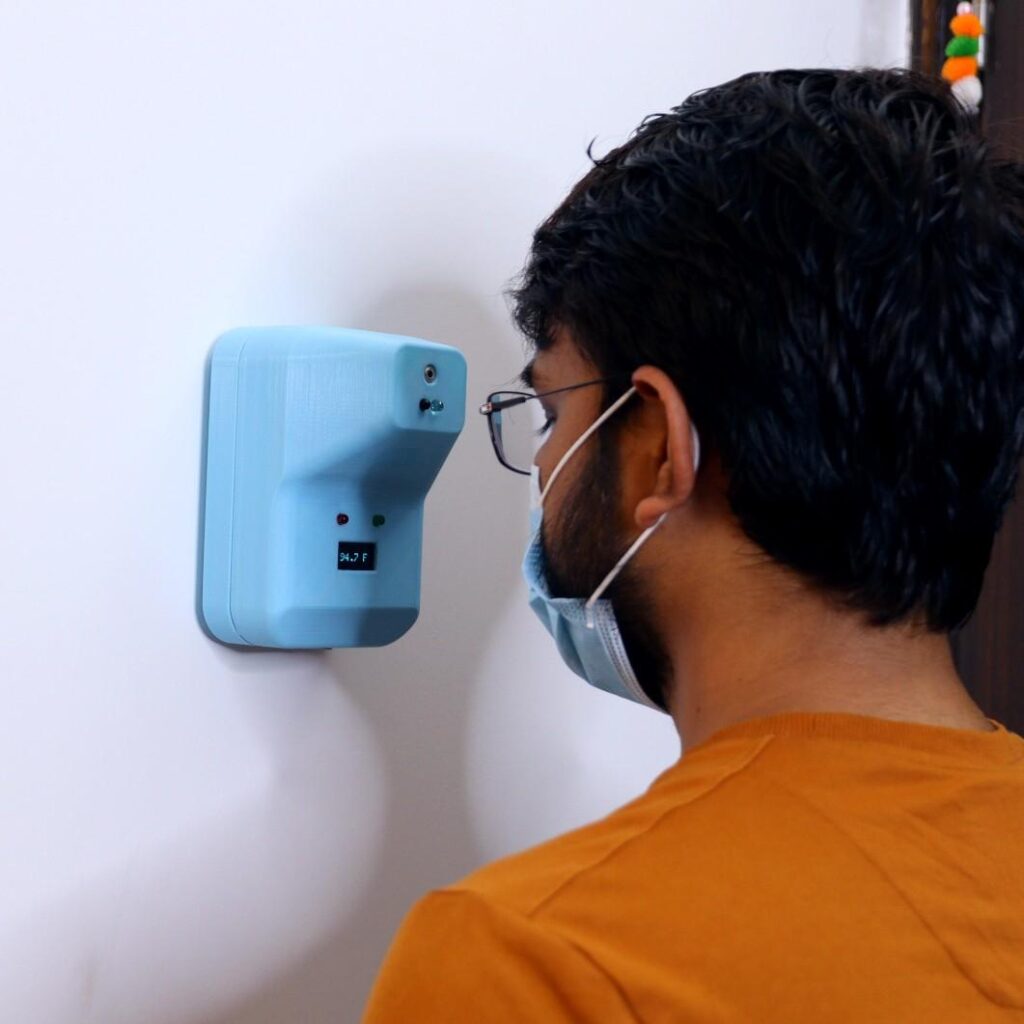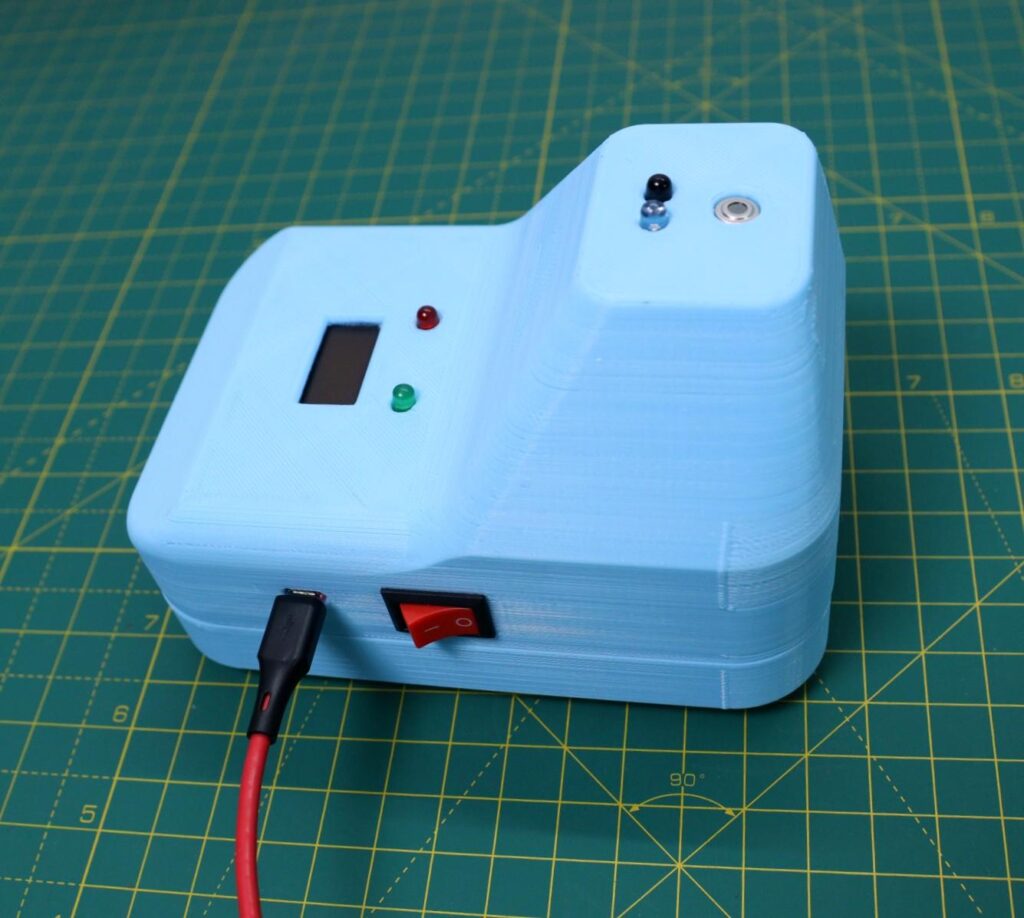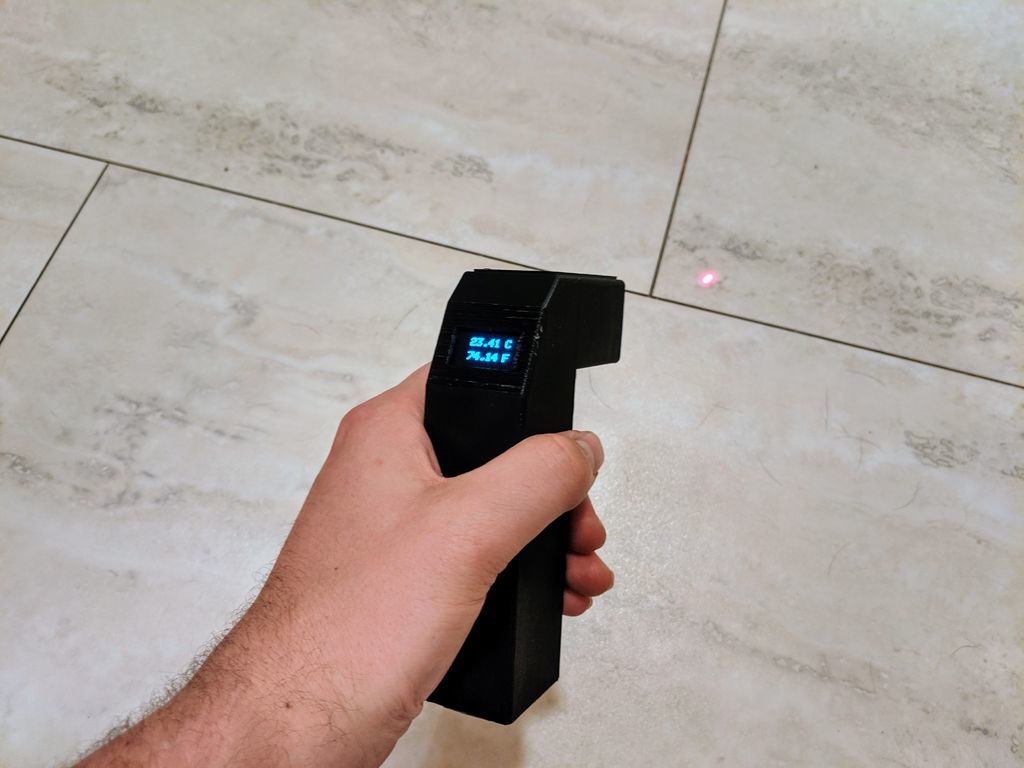02

In the age of COVID-19, being able to know when someone’s sick is vital, especially in countries where the disease is currently surging. It’s for this reason that Open Green Energy decided to build a battery-powered portable thermometer that not only takes a person’s temperature but also alerts other if it’s too high.
At the heart of the device is an Arduino Nano that takes in temperature data from a GY-906 module and displays it on a 0.96” OLED screen. Additionally, there’s an IR emitter/receiver that detects when a person is in front of the thermometer so their temperature can be read. If the value falls within the acceptable range, a green LED lights up, but if the value is too high, such as in the case of a fever, a buzzer begins to sound, and the red LED turns on.

All of the electronics were assembled onto a custom-designed PCB that has headers for the various modules and LEDs, along with a place for the Arduino and battery charging circuit. All of these components were then positioned inside of a 3D-printed enclosure that holds both the batteries and PCB at the bottom and the screen/LEDs at the top.
For more information about this project you can view its well-written writeup here on Instructables.
The post Create your own low-cost contactless IR thermometer with Arduino appeared first on Arduino Blog.



